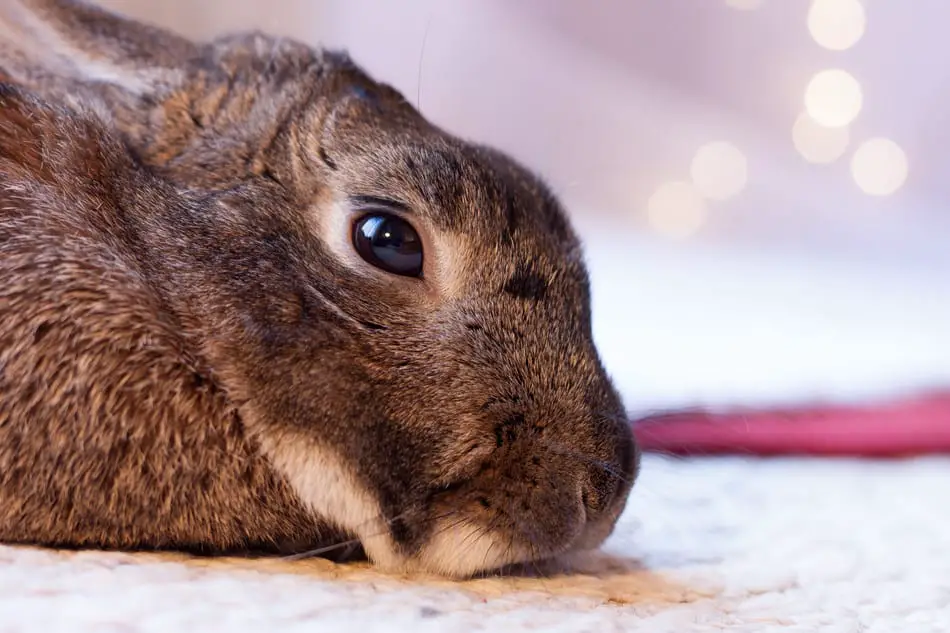Rabbits are an incredibly special pet. They build bonds with their owners and bring a lot of happiness. This is not just due to their ever so cute appearance, but also because of their amusing and friendly temperaments.
Rabbits are always full of joy and fill us with it too.
However, we explore here, the answer to the question ‘do rabbits get depressed?’ and explain the common reasons why this is likely to be true.
But, what if your rabbit is not his or herself? What if they seem down? Is it possible that your rabbit is suffering from the blues?
Rabbits do not have the same mental concerns as humans do. However, they are intelligent and can experience a wide range of emotions. These are both negative and positive with the negative possibly leading to depression.
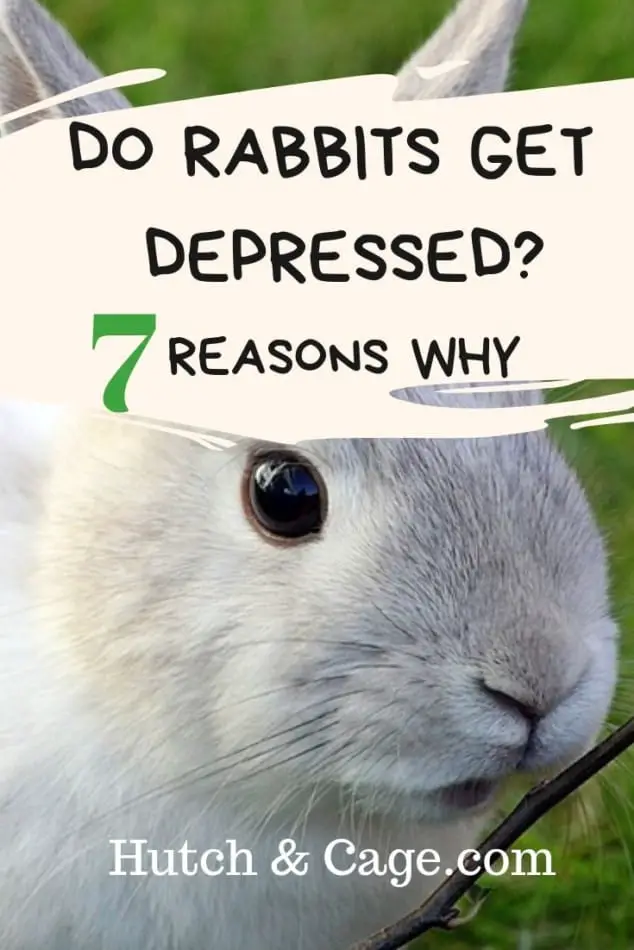
Table of Contents
7 Common Reasons Your Rabbit May Be Depressed
Whilst there are many reasons why your rabbit may be depressed, some are far more common than others. Here are seven of the most reported reasons your rabbit may be sad.
1 Death Of A Companion
Though it may sound a little crazy that a rabbit would mourn the death of a companion, it’s not. After all, they are social and sociable animals that form strong connections with other rabbits.
Once a companion has gone, the lone rabbit will search everywhere for their missing friend, and when they realize they are not coming back, they will be miserable.
If this happens to a rabbit that you own, you should let your rabbit grieve. It can also help to give them extra love and attention to keep their minds off their loss.
For loss of appetite, feed them extra tasty veggies and treats but be careful not to overfeed. In the long run, if you can, nothing will help your rabbit’s depression than getting them a new companion.
Also remember that not all vegetable and fruits are safe for rabbits to eat. Read our article on the most toxic foods for rabbits.
2 The Changing Of Seasons
Without doubt, the majority of people are in far higher spirits in the seasons with sunny days and more natural light. Winter months with their long dark days can bring you down.
This, according to researchers, is due to a lack of serotonin (a happy chemical) that regulates our moods and is something that we share with rabbits.
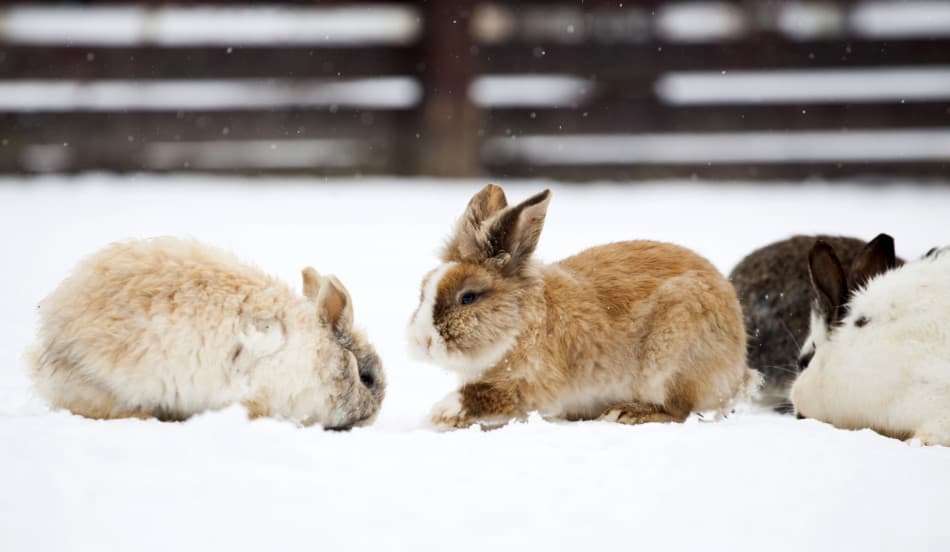
Whilst there has been little research into rabbits and serotonin, it is believed that it works in the same way as it does for humans.
Hence, rabbits too can suffer from seasonal depression. If this is the case for yours, you may notice behavioral changes which will possibly last until spring.
In order to help a rabbit with seasonal depression, you should give them plenty of affection and attention. You could also try installing a light that mimics natural light inside their cage.
3 Neutering And Spaying
Since both spaying and neutering involve surgery it is not hard to imagine that your rabbit may seem depressed after going through one of them.
This is a natural reaction and one you should not be too concerned about. After all, your rabbit’s sex organs have been removed, and they will also have been subject to considerable hormonal changes.
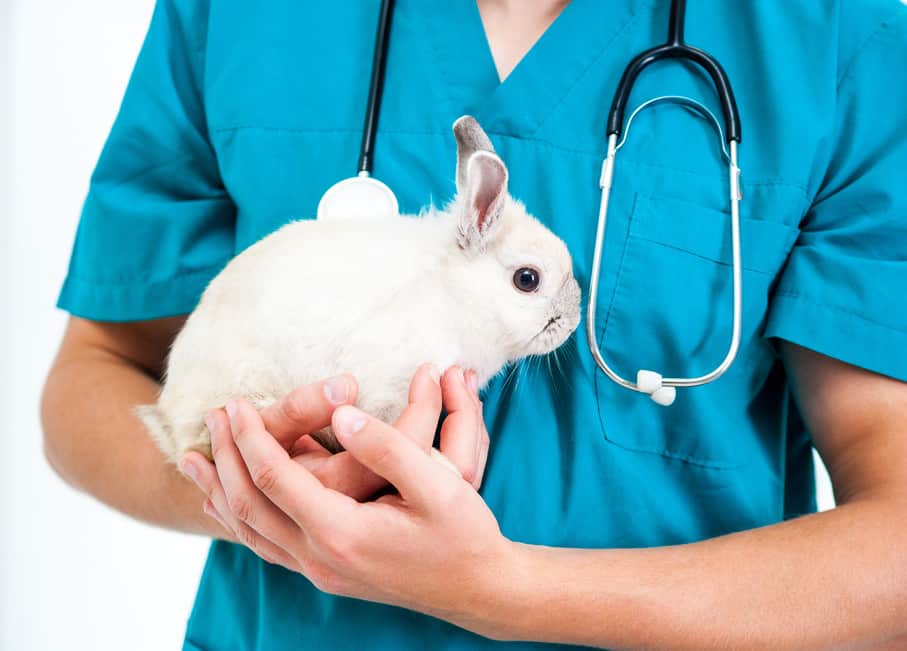
Neutering and spaying depression can last for several weeks with lethargy, lack of appetite, and sadness all being symptoms.
However, if your rabbit doesn’t return to normal after about a month, you should take them back to their vet. It may be that their wounds have not healed properly and that they are in pain or/and discomfort.
4 Under The Weather
We can all sympathize with a bunny that is not feeling well. We can also perfectly understand that they will not always be their usual cheery selves.
However, unlike us, they cannot communicate exactly what is wrong with them making it vital you check a sad bunnies health.
There are several common ailments in rabbits such as:
- Abnormal/excessive tooth growth – rabbits teeth grow throughout their lives and need to be worn down through chewing. If this does not occur it can be incredibly painful and involve pierced jaws and faces.
- Hairballs – rabbits love to groom themselves but unlike cats cannot vomit up furballs. The result of this can be blockages in the intestines which left untreated can be fatal.
- Flystrike – flies are attracted to soiled areas of fur on rabbits and will lay eggs there. The result of this is hatchlings whose main source of nutrition is the rabbit itself.
If you think your rabbit may be suffering from depression due to illness you should consult your vet.
5 I’m Lonely And I’m Bored
Of all the reasons your rabbit may be depressed, loneliness and boredom are most common.
This is often, partly due to human error in that people do not realize just how much attention and stimulation a rabbit needs.
Ideally, since rabbits are social animals you will take advantage of this and provide them with a companion. However, if you cannot, your rabbit will need around two hours of play with their owners in a day.
6 Poor Nutrition, Sad Bunny
It is usually quite easy to tell a rabbit that is suffering from depression due to poor nutrition. They will be lethargic, weak, and really have no desire to play.
They may also be more prone to illness since good diet contributes to a healthy immune system.
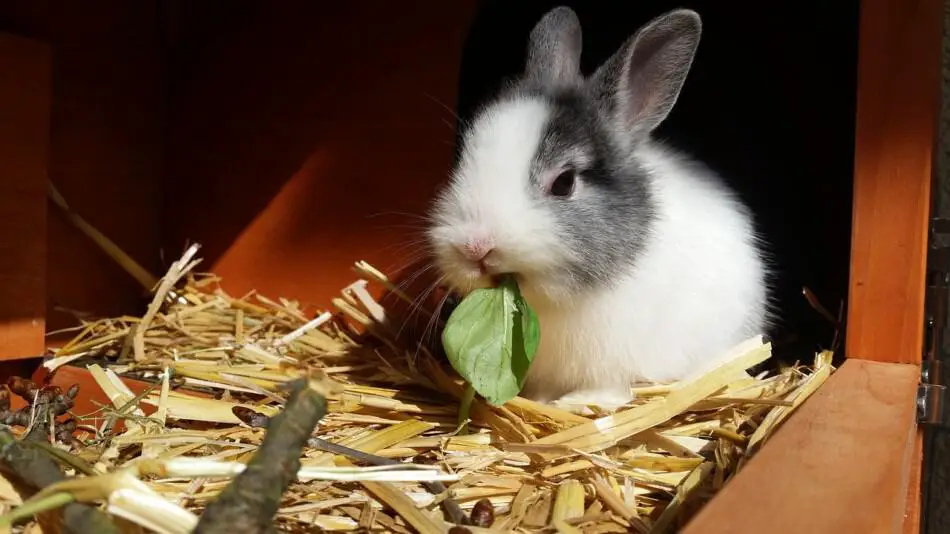
A diet which is high in good quality hay, alongside fruit, vegetables, and pellets is what we always recommend.
However, be careful not to overfeed. Always check that any fruit or vegetables you are planning on giving are indeed suitable for rabbits.
We use Kaytee Timothy Hay which we purchase on Amazon in twin Packs of 96oz bags. The link is provided above, go check out the customer reviews on this product for yourself.
We also feed our rabbits on Kaytee Pro Rabbit for. I have provided you with the link over to Amazon here to check out the prices and customer reviews.

7 Home Is Where The Heart Is
No matter how much ‘outside’ time you give your rabbit, they are still going to spend a large amount of time in their hutch.
This means that it needs to be a suitable environment that meets all your rabbit’s welfare needs.
A hutch needs to be suitable for the size of your bunny with enough room for them to lay stretched out and move around.
They also need separate areas to toilet, relax, eat, play, sleep, and feel safe. Failure to provide these will result in a very depressed rabbit.
Conclusion: Do rabbits get depressed?
It is highly unlikely that you will be able to keep your rabbit happy all the time. Especially considering that seasonal and neutering/spaying depression is pretty much unavoidable.
However, you can do your best to keep all other forms of rabbit sadness at bay and you can do this by providing the best care.
A well looked after bunny is generally a happy bunny and that’s what you want!

